Manhattan, Accidentally
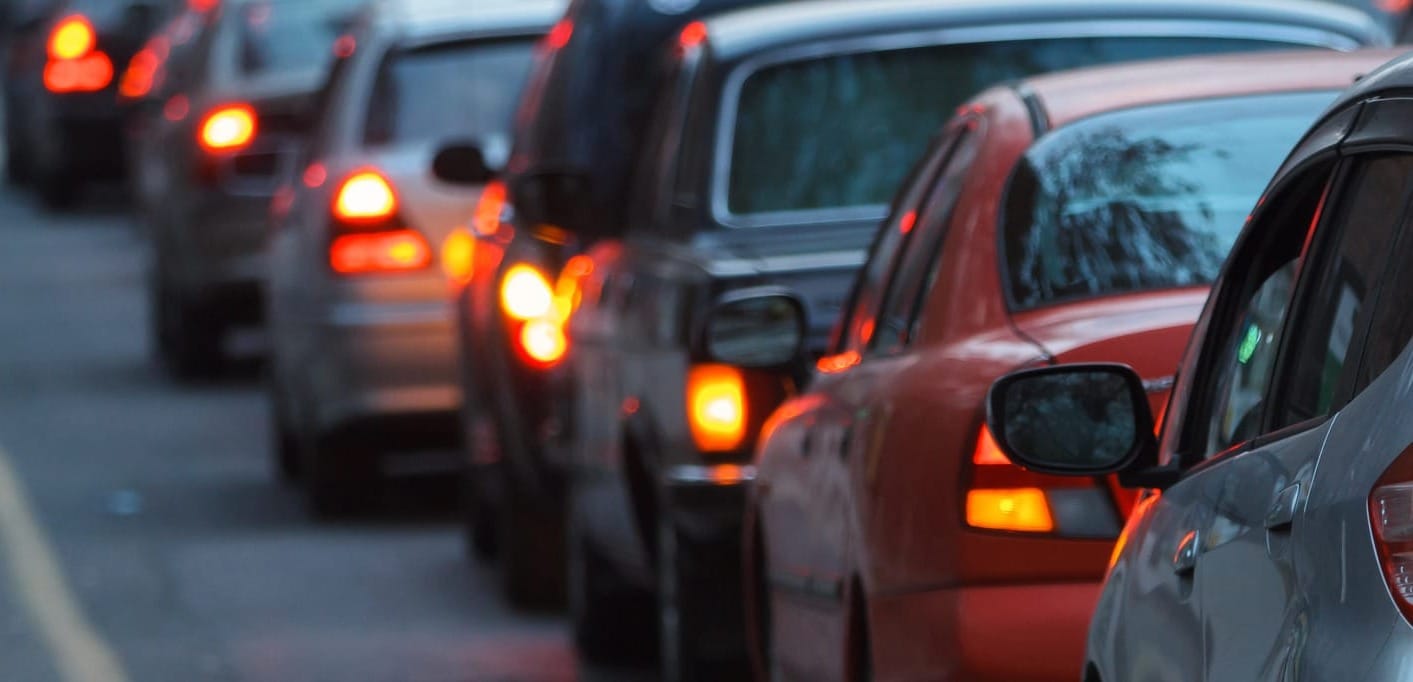
“Wherever you go, there you are.” — Jon Kabat-Zinn, professor emeritus of medicine and Zen Buddhist
Leaving Brooklyn, not yet realizing I’m crossing through Queens, I watch the congested outline of tall corners, spires, and curves—the skyline of Manhattan hazy in dense humidity—getting closer.
It’s Friday afternoon. It’s 98 degrees. Stopped in a maze of cars and SUVs that look bloated on these old neighborhood streets built mostly for feet, for foot traffic, perhaps horse traffic, I watch the hood of my rental car wobble as if woozy in the heat.
I roll down the window and listen to the sound of thousands of people caught in one moment, in one place.
My eyes scan pedestrian faces, apartment window faces, talking faces hugged to tiny phones, tired mother faces staring down into animated child faces, cabbie faces frustrated while cabbie hands pound taxi horns.
Part of the heat of any city is the heat of living bodies and breath. I want to feel the heat and remember it—a free souvenir for a business trip now turning into quick family visit.
A couple of hours ago, I walked the boardwalk at Coney Island talking to the director of the New York Aquarium. The air was steamy, the people around us diverse—Russian, Puerto Rican, Pakistani, Italian—all united by the lap and lure of tepid Atlantic seawater.
An amazingly energetic person, Jon Dohlin is leading the Aquarium through a major transformation of new programming, new facilities, a new future that cannot be built without philanthropy.
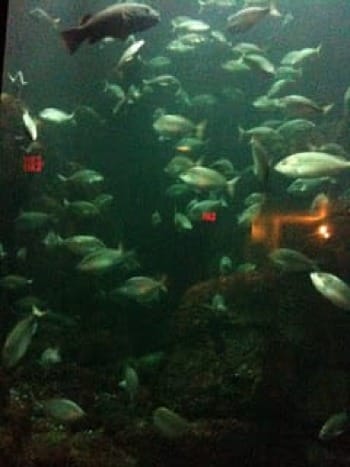
As he speaks—his words fast, his hands cutting the air, punctuating his ideas—I recall the city children moments earlier moving among the tanks and exhibits. They pressed fingers and foreheads to thick glass, trying to get as close as they could to walruses, undulating jellyfish, and immense sea bass, creatures they’d never imagined, their minds expanding through all of their senses.
“Mama, it smells like fish sticks in here!” “I feel the seal’s belly bumping the glass—can he see me—why’s he swimming upside down?” “Look at that fish’s mouth! He’s singing in the sea!”
I stare out at the traffic embracing my car. Nearly everyone waits behind rolled-up windows. I see mouths moving as people chat to each other or to their hands-free cell phones. Their mouths twist and contort, open and close, constant motion, so that almost everyone looks like a fish in an aquarium tank, each singing in a private sea.
I suck in my cheeks, flap my lips, and pretend I am a fish. My iPhone is working as my GPS device, so I’m not talking to anyone until I hit Jersey.
I came to Brooklyn to talk to Jon about his alma mater, Humboldt State University, a small campus tucked into the perpetual cool of Pacific coast redwoods 2,400 miles away. My brow was wet under my bangs as we stepped along the planks. Touching my temple, soggy, I tried to pretend it was the chill of Humboldt fog. Like the Aquarium, and most other public benefit resources, my University needs to build its base of private financial support if we still want a society where all people have access to a quality, affordable college education.
I’m the first in my family to earn a college degree. I worked and studied and sustained myself on poetry and Top Ramen noodles when they were 10 packs for a $1. I lost nearly 40 pounds. I found a path into my own life.
I believe in public education, K through BA, then MA, stopping short of PhD by choice not for lack of financial means thanks to being a California resident at the time. California’s leadership decided in 1960 that investing strategically in higher education for anyone willing to apply herself to the task of being a college student would fuel California’s economic future. I was born the same year, and by the time I was 24, I’d earned two degrees and California was the 5th largest economy in the world.
Today California is the 8th largest economy, and a mass of well educated citizens is surely part of the economic-success equation. I don’t want a sluggish economy and a crippled state budget system to push a college education out of anyone’s reach. I may not be a rocket scientist, but I know that the potential for brilliance, like the potential for love, has little to do with wealth or poverty—though developing one’s potential often does.
Unmoving in my car, a drop of perspiration reaches my lip. Salty. I think Queens is a giant fishbowl. I think ocean of people, people made of ocean, the human form is a puddle of saltwater.
I’m also wondering why I opted not to change from business slacks to tank top and shorts. I tap the screen of my iPhone, which should be in GPS mode, but keeps shutting down. The sound of the electronic lady guiding me from Brooklyn to Pennsylvania makes me feel less alone as I travel. Where is she?
I’m in gridlock, so I jiggle the cable powering the phone via the car’s cigarette lighter. The cable is the problem—bought it online for $1.92, free shipping, which seemed like a good deal at the time. Only 28% remains of the phone’s own battery power. Not good.

Before restarting the GPS app, I tap the camera app and look at the screen full of colorful fish—a quick photo I snapped while waiting to meet Jon. “Jon probably knows the name of every fish,” I mutter out loud.
But my electronic traveling companion only talks, she never listens. I look at a photo of a yellow seahorse with its tail wrapped around what looks like stunning red coral, then a photo of a green blob, which I remember is a turtle. I delete the turtle blob.
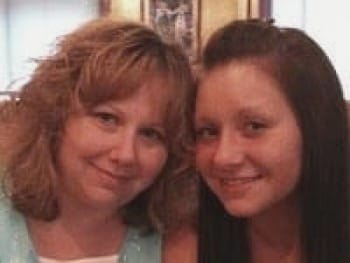
Then I look at photos of my cats and one of my husband smiling in a dimly lit restaurant. Before reengaging the GPS app, I glance at a photo of my sister and teenage niece that they texted to me—two of the 7 reasons I’m patiently immobilized in New York, rush-hour traffic.
I close the window, and let the car roll forward a few feet. The traffic is so slow I don’t need to use the gas pedal. I look into the car windows around me.
To my left is a big, blue Chevy. A teenage girl is in the front passenger seat and a woman, I assume her mother, is driving. I see only the back of the girl’s shiny black hair pulled tight into a pony tail and the occasional flash of a dangling earring.
Her hands keep slicing downward, her shoulders lunging forward then snapping back. She’s arguing. The Chevy rolls ahead a few yards, then I roll ahead. The girl turns her face to the window, toward me without looking at me. She’s frowning and serious.
Suddenly I realize that I’ve been singing quietly to myself for the last few, slow miles. Manhattan keeps getting uncomfortably closer, so I’ve been lamely singing “Hakuna Matata,” remembering how my husband took me to Broadway to see the Lion King on my 40th birthday. Back then we were living in Pennsylvania, and he did the driving. Stressed, I consider the irony that hakuna matata is Swahili for ‘there are no worries.’
I watch the Chevy girl’s somber face. Silver skulls swing at the bottoms of her earrings. I sing loudly to her, and flail my arms dramatically as if performing an opera. I don’t actually know the words to the song, so I just sing, “hakuna matata, what a wonderful word, hakuna matata, you’re a wonderful girl,” repeatedly, though we’re both encased in steel, plastic and glass, and she can’t hear me.
The girl’s eyes lift up, brown and deep, lined above and below in black. She sees me. I keep singing and flailing, until she smiles and then breaks into a laugh. My random act of silliness for the day. Her lane picks up and she’s gone.
My mind is at Coney Island again. Jon and I have the same philosophy about developing philanthropy, or at least, charitable giving. He says, “It’s about relationships.” “Yes,” I say, “People need to feel that they’ve been heard before they give, that they’re involved in something bigger than themselves.” He says it simpler, “We’re part of people’s lives. If we care, they’ll care.”
I wonder about Chevy girl. Does she feel heard, cared about? I want to tell her I’ll remember her, that she has her whole life ahead of her to do whatever cool things she wants to do if she tries. But my wisdom arrives too late.
My GPS app has gone down again. I plug and unplug the cable. I’m about to inflict my first profanity on a cellular device, when I see a sign in the distance: Midtown Tunnel. A wave of relief. My electronic lady, who should have taken me south via Staten Island, must have a grand plan to simply take me under Manhattan and somehow drop me near the New Jersey turnpike.
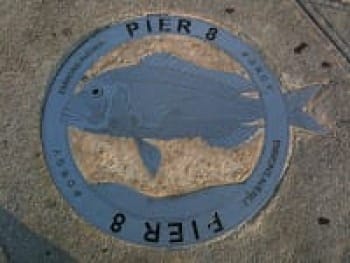
Happily, as my car dips into the tunnel, the traffic gains speed. We’re orderly rows of private compartments, cruising, subterranean, below what I envision is the weight of skyscrapers, big aspirations, private fears, memories threading in all directions, millions of lives in full Manhattan motion.
I’m passing under and through it all, humming the melody to The Circle of Life.
Emerging into long shadows, traffic comes to an abrupt halt. I feel prodded into a cattle shoot. My eyes slowly climb the beige corner of a cement structure until, cheek to window, chin up, I’m looking at a narrow wedge of milky blue sky.
Focusing forward, a few blocks ahead, I see America’s most recognizable building. I think, King Kong, then Fay Wray—how does the name of an obscure 1933 actress, best remembered for her ability to scream, slip into this moment?
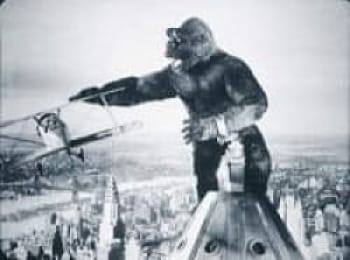
I’m not humming now.
“What’s the Empire State Building doing there? How could you possibly put me here? Are you an idiot?” I’m yelling at my iPhone. I don’t expect an answer, yet the electronic lady replies, “Recalculating. Prepare to Turn Left.”
As far as I can see, road signs prohibit left turns from 3 to 6 p.m. on weekdays. It’s still Friday afternoon, only a little past 5:30. I spout the worst four-letter word I can think of. The traffic inches forward. I sit, wait. I reach a corner and turn right.
A female traffic officer motions me to lower my passenger window. “Did you not see me tell you to not turn right?”
The voice in my head answers: No, Ma’am. I didn’t know two fingers waived in front of your navel while adjusting your bra strap meant don’t turn right. I thought only baseball players had to know secret hand signals. I’m an idiot, Ma’am. I let a cell phone guided by a witch put me in front of the Empire State Building at 5:46 on a sweltering, summer Friday afternoon.
My audible voice is wiser: “I’m soooooo sorry, Ma’am, I’m not from around here.” She sweeps her right arm in a circle, and I idle up another two blocks.
Philanthropy is generally defined as a desire to promote the well-being of others. This is not a philanthropic moment.
A male traffic officer points me forward. He shouts something in Spanish, then in English: “Ignore the red light! I’m directing now.”
Surprise, I’m trapped in an intersection. A river of humanity flows 5- to 10-people wide across the street in front of me. A line of three yellow taxi cabs honk, edging to within inches of the right side of my car. The officer shrugs, the closest I’ll come to empathy.
He wants me to drive through the human river. “Are you trying to get that white woman to kill us!,” a black woman rants, pausing to shake her head at me. “Sorry.” I’m not sure if she reads lips.
I make it through the bodies and stop. Calmly my female navigator advises, “Traffic report updated. No traffic reported.”
If we care, they’ll care. I’m trying to apply my Coney Island conversation to the present moment. Buddhist philosophy suggests that the present moment is all we ever have, and that all we ever need is in the present moment.
Care. Find the peace that’s ever present. Okay, that’s not working for me right now.
I have two degrees. Thanks, California. I’ve been a foundation CEO responsible for millions in assets, and I know how to fix a leaky toilet. Thanks again, California, the education works. I’ve blithely hang-glided off a cliff in Rio, arcing out over the Atlantic, essentially tied to a huge kite and a small Brazilian man as pilot.
Education opens the mind to the new—you learn how to learn so anyone, anything can be a teacher. Why, then, do I feel so lost and incompetent piloting myself through Manhattan?
I consider crying and leaving the car next to the Hudson River, then walking to Pennsylvania dragging my suitcase on its little lopsided wheels down I-78.
Instead I jiggle the phone cable again, and check the map. Only a few more blocks, another turn, and I’ll be in the Holland Tunnel. I decide that New Jersey is a wonderful state. I imagine iced tea, walking again, the luxury of a rest-stop ladies room.
I also imagine sleeping in this car, the Empire State Building casting its long pointed shadow into my dreaming, slowly forgetting the musty smell of an old-growth forest and what fern means.
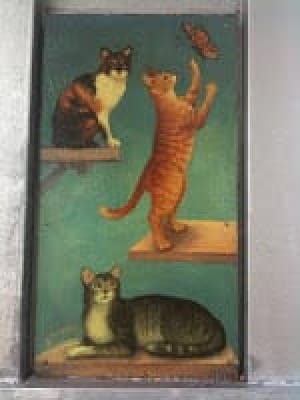
I open the window. Wet, hot, almost hard air leans in—the physical breath of defeat.
I close my eyes and see the elderly woman I met in her floral dress and double string of pearls. She is sitting in an aluminum lawn chair on her sidewalk during my early morning walk to explore the ocean side of Sheepshead Bay.
I see her look up from her newspaper, straighten her skirt, cross her hands in her lap, waiting for me to reach her. I see her smiling as I greet her, her eyes teal-blue, shiny, the color of shallow sea lit with sun.
We talk about the heat, why I’m in Brooklyn, how long it’s been since she visited the Aquarium, how much bigger a redwood is than her sycamore, what a lovely neighborhood she lives in.
“It’s called Manhattan Beach but it’s really just part of Brooklyn,” she beams. “My husband passed a long time ago, but I keep going.”
Remembering her words, my eyelids fly up and wide open. The Buddhists are right. It’s all here.
“I keep going.” That’s the pearl she offered just when I needed it most—now.
One synonym for philanthropy is kindheartedness. We were two kindhearted women intersecting. I feel a flush of tenderness. Minutes in the presence of one luminous person is worth more than many years spent among ordinary others.
It’s about relationships. Rare, I met two such people today. I want to say ‘thank you,’ though again my wisdom arrives too late.
I tap the screen on my iPhone. “Recalculating,” the electronic lady announces. “Yes. That’s right,” I whisper-reply.
I inch toward the Holland Tunnel, designed by a man who died before it was done. What he began, others continued. I’m pulled into the 83-year old tube, caught in the heavy flow of traffic below the steady rush of the Hudson.
I’ve found the well-worn passageway to New Jersey, Pennsylvania, family.

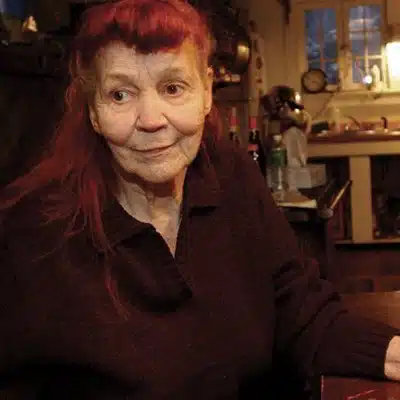
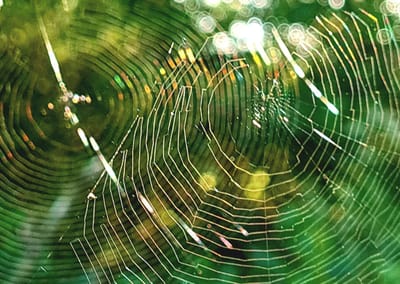
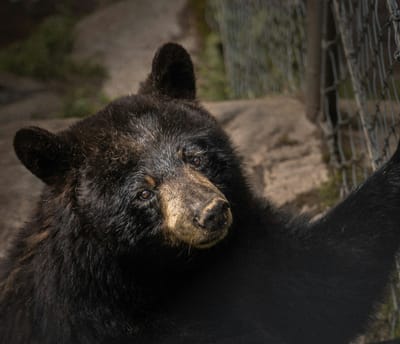
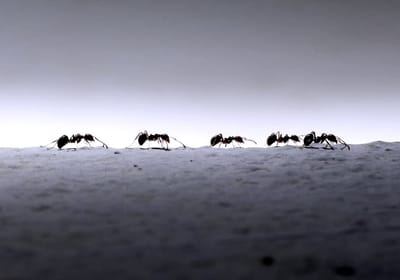
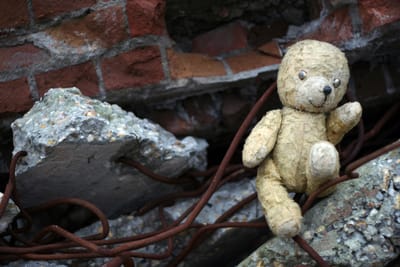
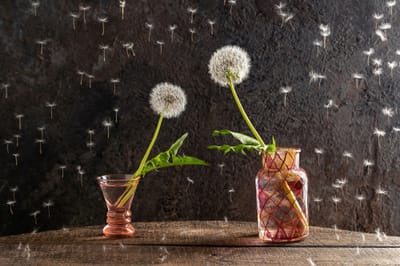
Member discussion